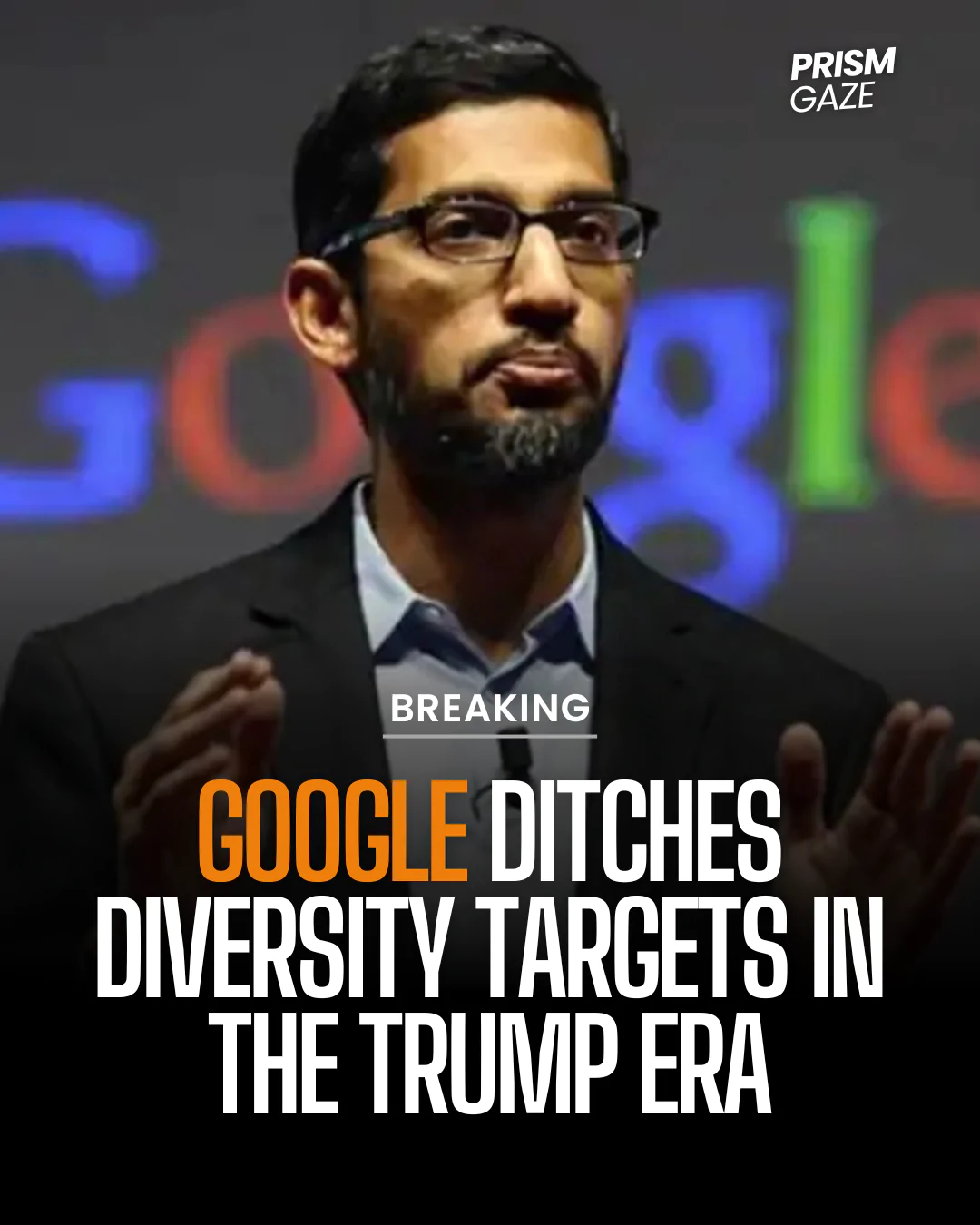Google has officially abandoned its formal diversity, equity, and inclusion (DEI) hiring and promotion targets, marking a significant shift in corporate policy amid political and legal pressures during President Donald Trump’s second term. Here’s a detailed breakdown of the developments:
1. Key Policy Changes at Google
- Termination of Formal Diversity Goals: Google will no longer set “aspirational goals” tied to workforce representation, such as its 2020 pledge to increase underrepresented groups in leadership by 30% by 2025. This includes removing language from its annual SEC filings that previously emphasized DEI commitments.
- Compliance with Trump’s Executive Orders: The decision aligns with Trump’s January 2025 executive order targeting federal contractors, which prohibits DEI initiatives deemed “discriminatory” and threatens penalties under the False Claims Act (e.g., fines up to three times damages). Google’s cloud division, a federal contractor, is directly affected.
2. Political and Legal Context
- Federal Pressure: Trump’s administration has dismantled Biden-era DEI policies, labeling them as “reverse discrimination” and directing agencies to investigate companies with DEI programs. The 2023 Supreme Court ruling against race-based college admissions further heightened corporate fears of litigation.
- Industry-Wide Retreat: Meta, Amazon, Walmart, Target, and others have similarly scaled back DEI efforts. Apple is a notable exception, resisting shareholder pressure to abandon its programs.
3. Google’s Progress and Workforce Demographics
- Post-2020 Efforts: After George Floyd’s murder, Google expanded DEI initiatives, increasing Black leadership from 2.6% (2020) to 5.1% (2024) and Hispanic leadership from 3.7% to 4.3%. Women now hold 32.8% of leadership roles, up from 26.7% in 2020.
- Current Workforce: As of 2024, Google’s U.S. workforce is 45.3% white, 45.7% Asian, 5.7% Black, and 7.5% Latino. Two-thirds of its global workforce are men.
4. Google’s Revised Approach
- Focus on “Equal Opportunities”: The company claims it remains committed to fairness but will prioritize merit-based hiring. Employee Resource Groups (ERGs) for underrepresented communities will continue.
- Risk Assessment: Google is reviewing DEI programs for effectiveness and legal risks, potentially cutting initiatives deemed ineffective or risky.
5. Broader Implications
- Criticism from DEI Advocates: Civil rights groups argue that Trump’s policies undermine workplace equity. Critics fear reduced opportunities for minorities and women.
- Elon Musk and Conservative Influence: Musk has publicly condemned DEI as “racism,” reflecting a broader conservative backlash. Meta’s appointment of Trump ally Dana White to its board signals ideological shifts in tech leadership.
Outlook
Google’s reversal highlights the tension between corporate social responsibility and political compliance. While the company maintains a commitment to inclusivity, the absence of measurable goals raises questions about accountability. The trend underscores how regulatory environments can reshape corporate priorities, with long-term impacts on workplace diversity.
Also Read: Trump’s Gaza Takeover: A Solution or a Recipe for Disaster?
